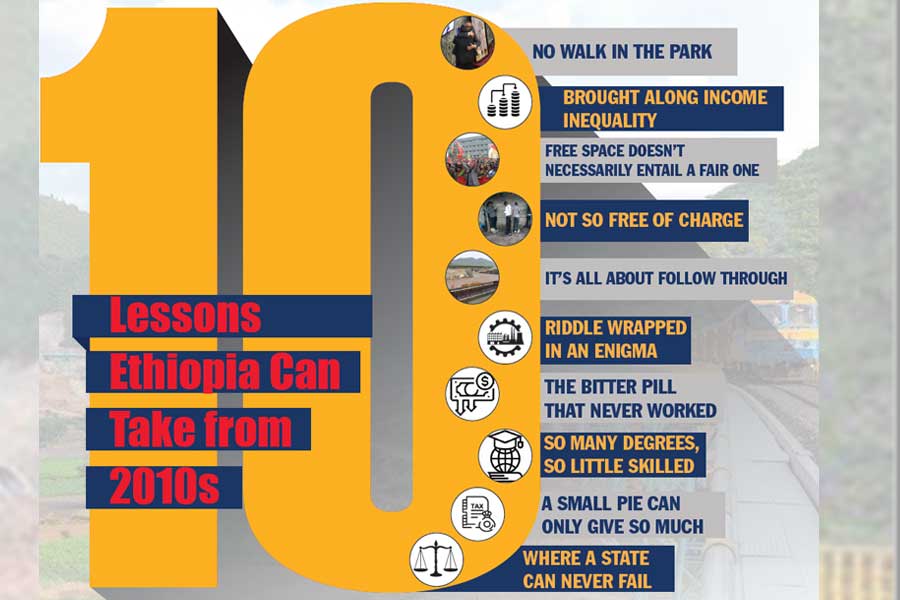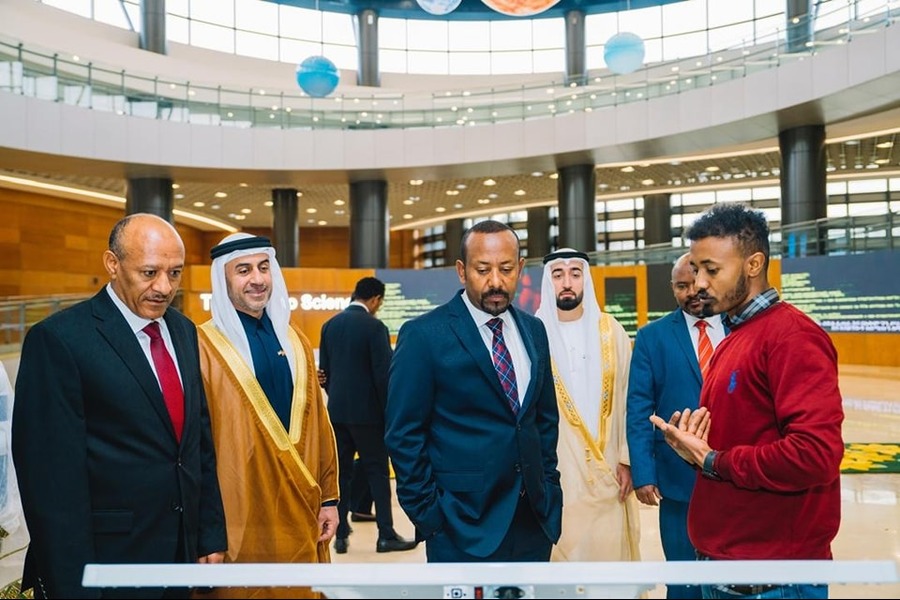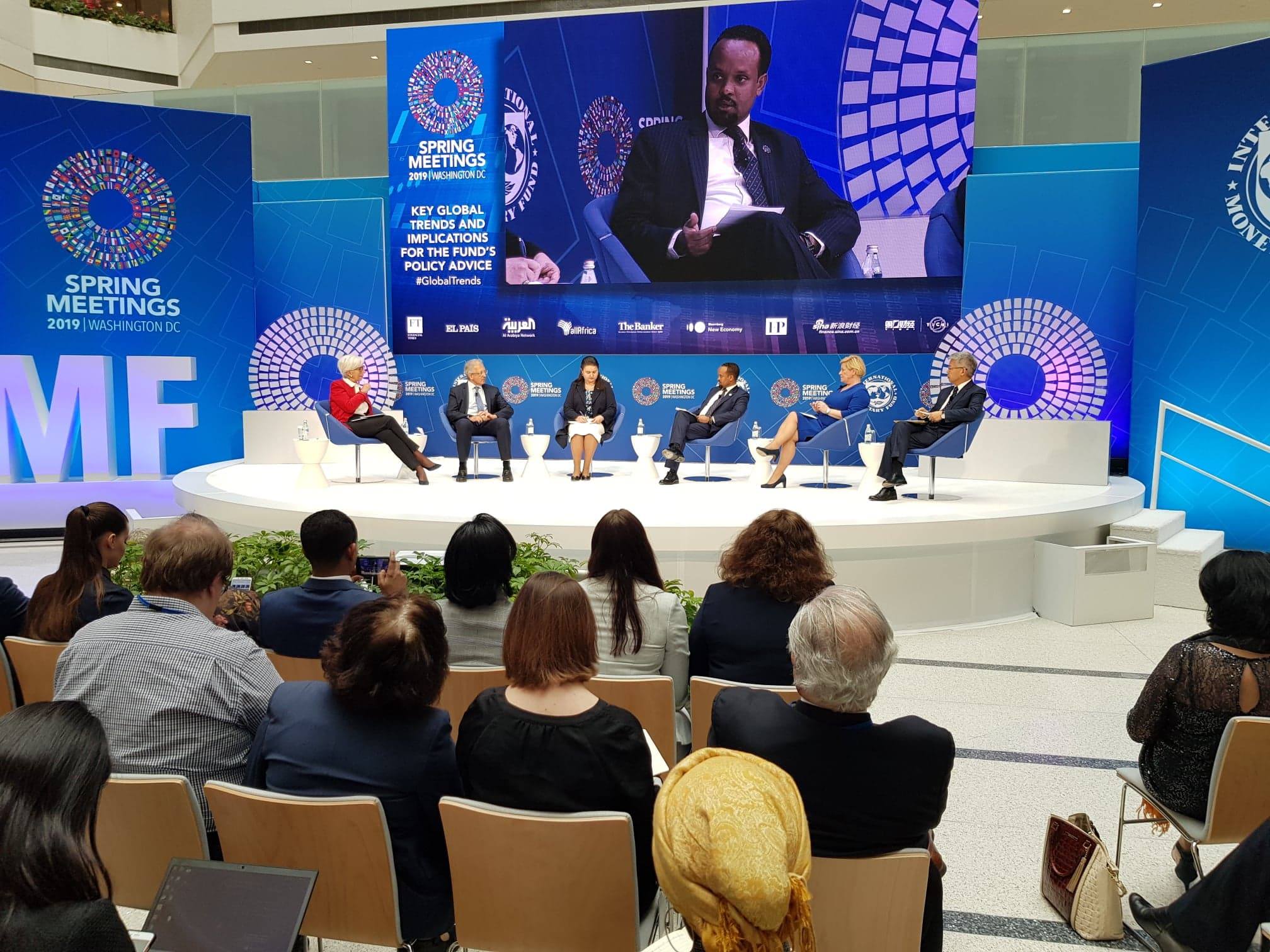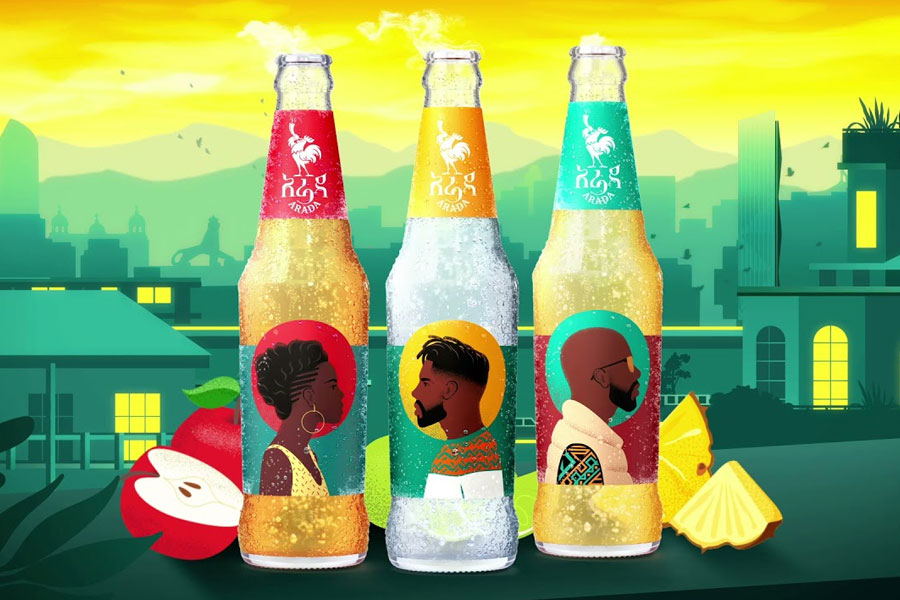
Commentaries | Mar 30,2024
Mar 21 , 2020
By Frank E. Watkins
Ethiopians are hard-working and well-educated people.
The Ethiopian diaspora living in the United States “age 16 and older were more likely than individuals in the general US population to participate in the labour force: 74pc versus 64pc,” according to the Migration Policy Institute’s 2014 report.
The report also indicates 12pc of the Ethiopian diaspora age 25 and older have a master’s degree, PhD, or an advanced professional degree. The figure for the US general population is 11 percent.
Considering the rich history and work ethic that Ethiopians are known for, it behooves us to ask why their country is one of the poorest in the world?
The answers are due in equal parts to bad development policies, lack of committed leadership, and hindering international interventions that at times seem to work against the development aspirations of sub-Saharan African countries.
Take domestic issues. For half a century, Ethiopia was under the clutches of leftist autocrats. Property rights were frowned upon, democratic rights were viewed as a luxury Ethiopia could not afford and the free press was branded as the enemy of the people. The market economy was condemned as the source of all greed and evil.
In April 2018, Abiy Ahmed (PhD) burst onto the Ethiopian political scene, taking the mantle of the country's prime ministership. At 42, he was the youngest African leader, raising doubts in some quarters if he could rise up to the challenge.
Soon after, he rolled out blitzkrieg political reforms at a dizzying speed. On the economic front, he announced a paradigm shift from a developmental state, where the government was the dominant player, to a free market economy where private industries are the engine of growth.
“These are not ordinary times in Ethiopia. Sweeping changes that seemed unthinkable just weeks ago have been announced almost daily since a new prime minister, Africa’s youngest head of government, took office,” Fox News, America's conservative media powerhouse, reported. A liberal British newspaper, the Guardian, heralded the same view, noting that Ahmed has “earned comparisons to Nelson Mandela, Justin Trudeau, Barack Obama and Mikhail Gorbachev.”
“Ethiopia will have a chance not only to reinvent itself but also to bring a wave of reform and perhaps even democratization to the wider region,” Foreign Affairsassessed Ahmad’s performance in its September 2018 issue. A year later, a Financial Times op-ed piece shared a similar opinion, stating that his reforms are “an object of fascination around the continent. Success could ignite economic change through emulation equivalent to South Korea’s influence on Asia in the 1970s.”
In October 2019, Ahmed won the Nobel Prize for Peace in recognition of his efforts to “achieve peace and international cooperation” and for initiating “important reforms that give many citizens hope for a better life and a brighter future.”
Ethiopia’s prayers for good policy and inspiring leadership seemed answered and all the stars seemed aligned for a transformational change.
The country’s hope for prosperity is anchored in its bold plans for agricultural revolution and industrialisation. This is to be achieved by building a web of irrigation systems and large-scale industrial parks. One of the major obstacles to the country’s aspirations for prosperity is the lack of electricity to pump water into the irrigation systems and power the planned industrial parks.
Ethiopia’s answer to overcome that obstacle is the Grand Ethiopian Renaissance Dam (GERD), the largest dam in Africa that it is building over the Nile River to generate hydropower. Ethiopians see the Grand Dam as a bridge to link their historic glory and their sense of future greatness.
The Stiftung Wissenschaft und Politik (SWP), Europe’s leading think tank, seems to nod in agreement.
“Not just as an infrastructure project, but a project of the century, which should pave the way for the modernisation of the country,” it regarded the dam.
Though Ethiopia is the source of 86pc of the Nile water, and the Dam is built in its sovereign territory, Egypt, Ethiopia’s historic rival, sees the dam as a threat to its national security. Egypt considers Ethiopia’s plan to use the Nile River for her development needs as a “declaration of war” against the people of Egypt. In 2013, the Egyptian cabinet, chaired by then-President Mohammed Morsi, considered several overt and covert actions to stop Ethiopia from building the Grand Dam.
“One of the politicians suggested sending special forces to destroy the dam; another thought of jet fighters to scare the Ethiopians; and a third called for Egypt to support rebel groups fighting the [Ethiopian] government,” the BBC reported.
“If Egypt is the Nile Gift, then the Nile is a gift to Egypt. If it diminishes by one drop, then our blood is the alternative,” President Morsi said, summing up Egypt’s assumed absolute hegemony over the Nile.
Egypt has since softened its “not even one drop of water” stand but still demands Ethiopia must agree to stringent conditions to limit its water usage that are far more stringent than international water laws and equitable water sharing norms allow; reduce the power generation capacity of the Dam; abandon the four to six-year time frame to fill the Dam’s reservoir and instead fill it in 12 to 21 years.
Doing the bidding of Egypt, the United States government and the World Bank threw a dagger at the heart of Ethiopia’s hope for a better life and a brighter future. The United States gave Ethiopia a thinly veiled ultimatum to sign an agreement that it drafted with the World Bank, requiring the poor Sub-Saharan African nation to concede to Egypt’s hegemonic claim over the Nile River. Ethiopia, a nation known to fiercely defend its sovereign rights rejected the pressure.
Egypt’s Minister of Foreign Affairs, Ahmed Hafiz, is now portraying Ethiopia as an international pariah that has rejected an international agreement supported by the United States and the World Bank. The Minister stressed the negotiation was “sponsored by the United States and the World Bank” and the agreement was “developed by the American side and the World Bank.”
Citing the United States and World Bank sanctioned “agreement” as an international alibi, Egypt is threatening Ethiopia with war if it refuses to sign the document.
“If Ethiopia is pressured to sign the agreement, it will be a colonial-like agreement both in spirit and substance that will give Egypt uncontested hegemonic power over Ethiopia’s natural water resources," Jesse Jackson, the American civil rights advocate, wrote for this publication. "History and international law will forever condemn the US government and the World Bank for their role in reviving Great Britain’s 1929 colonial treaty with a thinly disguised veneer and obfuscated legalese to make it look like a 21st-century treaty.”
There is no way to sugar coat this other than to state bluntly that the bedrock of the United States and World Bank intervention is the reincarnation of the 1929 colonial treaty. If the agreement is not unequivocally rejected by the world community, “Ethiopia Could become 21st Century Colony of Egypt”, as Jackson warned.
This is a story not only of water conflicts between two countries but also of systemic international interventions that stand in the way of the development efforts of poor Sub-Saharan African countries. If the United States and the World Bank fail to mitigate, if not eliminate, the negative impact of the draft agreement they have inked without mandate or legitimate authority, the international community must hold them responsible for any damage - financial or otherwise - Ethiopia and the region might suffer.
PUBLISHED ON
Mar 21,2020 [ VOL
20 , NO
1038]


Commentaries | Mar 30,2024

Fortune News | Sep 30,2023

Life Matters | Jun 13,2020

Fortune News | Jan 05,2020

Fortune News | Aug 08,2020

Radar | Jan 29,2022

Radar | Jul 28,2024

Fortune News | Apr 13,2019

Radar | Jan 31,2021

Fortune News | Apr 24,2021

My Opinion | 131772 Views | Aug 14,2021

My Opinion | 128157 Views | Aug 21,2021

My Opinion | 126102 Views | Sep 10,2021

My Opinion | 123723 Views | Aug 07,2021

Dec 22 , 2024 . By TIZITA SHEWAFERAW
Charged with transforming colossal state-owned enterprises into modern and competitiv...

Aug 18 , 2024 . By AKSAH ITALO
Although predictable Yonas Zerihun's job in the ride-hailing service is not immune to...

Jul 28 , 2024 . By TIZITA SHEWAFERAW
Unhabitual, perhaps too many, Samuel Gebreyohannes, 38, used to occasionally enjoy a couple of beers at breakfast. However, he recently swit...

Jul 13 , 2024 . By AKSAH ITALO
Investors who rely on tractors, trucks, and field vehicles for commuting, transporting commodities, and f...

Jul 5 , 2025
Six years ago, Ethiopia was the darling of international liberal commentators. A year...

Jun 28 , 2025
Meseret Damtie, the assertive auditor general, has never been shy about naming names...

Jun 21 , 2025
A well-worn adage says, “Budget is not destiny, but it is direction.” Examining t...

Jun 14 , 2025
Yet again, the Horn of Africa is bracing for trouble. A region already frayed by wars...

Jul 6 , 2025 . By BEZAWIT HULUAGER
The federal legislature gave Prime Minister Abiy Ahmed (PhD) what he wanted: a 1.9 tr...

Jul 6 , 2025 . By YITBAREK GETACHEW
In a city rising skyward at breakneck speed, a reckoning has arrived. Authorities in...

Jul 6 , 2025 . By NAHOM AYELE
A landmark directive from the Ministry of Finance signals a paradigm shift in the cou...

Jul 6 , 2025 . By NAHOM AYELE
Awash Bank has announced plans to establish a dedicated investment banking subsidiary...